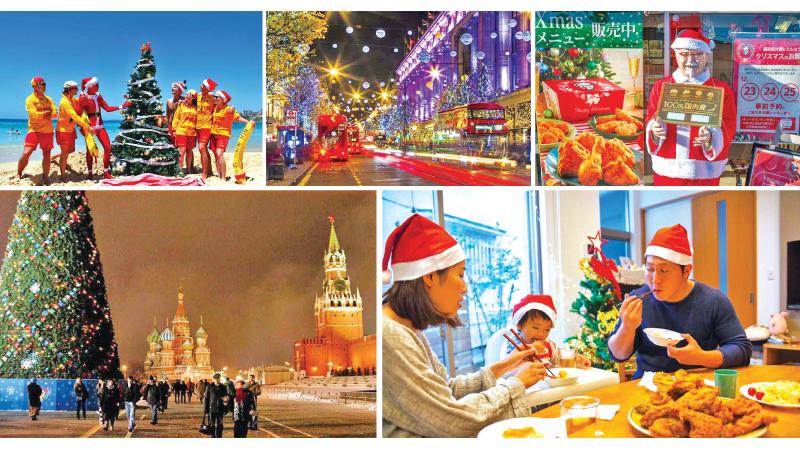
Ornamental decorations go up in commercial centres and storefronts in November, but will be taken down on the 25th of December and replaced by New Year decorations
The annual celebration of Christmas in the West was originally meant to commemorate the birth of baby Jesus on the 25th of December. However, it has since become a global phenomenon, with many secular or non-Christian cultures observing and enjoying the seasonal holiday festivities, sometimes completely separate from its Western religious roots.
Even among Christian countries, the traditions and religious observances vary greatly between cultures, differing from when it’s celebrated to its name.
As can be expected of the nation that brought Christmas to the United States, the traditions of the United Kingdom are quite similar to the Americas in most ways. But if anything, it is even more prominent in the UK, as it doesn’t have an equivalent of Thanksgiving to contest it, making Christmas the premier holiday of the season.
In Britain
The ‘Christmas Season’ for Brits is traditionally thought of as the period of Advent, Christmas Eve, Christmas Day, Boxing Day, the days up to New Year, all the way until Twelfth Night (January 5th). However, in recent years, there has been a more noticeable focus on the build up towards Christmas, with celebrations abruptly ending at Boxing Day. Prior to Brexit, celebrations were also heavily multicultural in the UK as there was a strong relationship with the rest of Europe and the Commonwealth.
Australia
Australia is in a very similar boat to the UK, sharing many of the common Christmas traditions with it and the US. However, there is an obvious very marked difference in theme for the season. While it is usually snowy winter wonderland for the Brits and Americans, Australians are well into their summer heat, even in December.
For the Australians in the southern coastal parts of the continent, Christmas is a time to hit the beach. While the heat makes it difficult for most standard western Christmas traditions, Australians still enjoy decorating their homes for the season, especially with Christmas lights.
Japan
In Japan, Christmas is quite distinct from the West. As only 1.5% of the population practice and observe Christianity, the holiday is observed less for the birth of Jesus Christ and more as a way for businesses to make more money in the lead-up to the New Year.
The main festivities of Christmas occur on Christmas Eve instead of the day itself, which is different to the American tradition but matches the practice in some other European nations. Ornamental decorations go up in commercial centres and storefronts in November, but will be taken down on the 25th of December and replaced by New Year decorations.
Christmas in Japan is considered a romantic holiday, much like Valentine’s Day, and it is considered a personal failure if one remains single during it. One of the most unique traditions of Japan is fried chicken being the typical Christmas dinner, specifically KFC fried chicken, thanks to the franchise’s successful aggressive marketing.
Russia
Before the October Revolution, Russia followed similar Christmas traditions as other countries. The only notable difference was the date of celebration - the Russian Orthodox Church observed the Julian Calendar, so their Christmas was on January 7 for Gregorians.
Decorations, such as trees and garlands, were still commonplace, along with the traditional figure of St. Nicholas (Santa Claus) as the gift-giver.
The New Year was a separate, secular event established by Peter the Great and had no relation to Christmas. However, after the revolution, Soviet authorities removed all religious associations from Christmas, instead linking it to the secular New Year.
A new character was invented to replace Santa, called Ded Moroz (Grandfather Frost). His origins were based on an old Slavic nature spirit, Morozko (or Jack Frost) but was now given a distinctly Santa-like persona.
Snegurochka (Snow Maiden) was also created as his grand-daughter sidekick and was loosely based on Russian Mythology and Tales but neither of these characters were previously connected to Christmas or New Year. Even after Soviet Russia fell, Russians continued to observe this Soviet New Year holiday.
